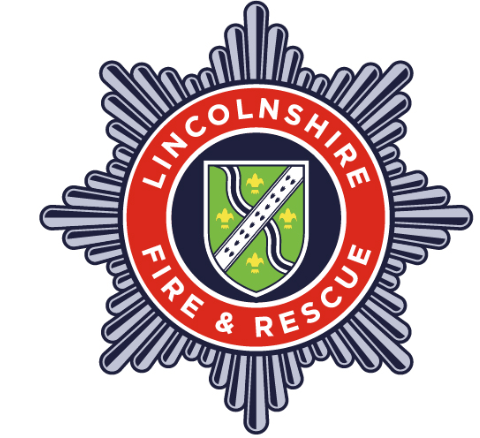Extreme Cold Weather
What is the risk of extreme cold weather to Lincolnshire?
Extreme cold weather entails low (sub-zero) temperatures and heavy snow for prolonged periods.
The lead agency(s) in Lincolnshire for severe weather events varies depending on the type and impacts of the weather.
They may include Lincolnshire Police, Lincolnshire Fire & Rescue, Environment Agency, Lincolnshire County Council and East Midlands Ambulance Service.
You can download the information used on this page via a bite-size risk information document.
How could extreme cold weather
affect you and your community?
Extreme cold weather can include low temperatures, ice and snow
- Risk to life
- Casualties/ injury (slips and falls)
- Health impacts on the elderly and vulnerable with extreme temperatures
- Disruption to utilities (electricity, gas, and water)
- Damage to property, businesses, and agricultural land
- Widespread structural damage
- Risk to life of livestock
- Flooding of properties
- Transport disruption (air, sea, road, rail) long delays
- Potential stranded passengers on transport routes
- Strain on emergency responder organisations
- Dangerous driving conditions (spray and standing water/ice/hail/snow/fog/wind)
- Communities becoming cut off due to flooded access routes/ heavy snow
- Changes in working practices and daily routines to adapt to the conditions
We can all be better prepared to
respond and recover from extreme cold weather
Follow this guidance to help you stay safe and well during extreme cold weather:
Stay tuned into the UK forecast
Download the Met Office App so you can not only keep an eye on the forecast to understand the likelihood of any impactful weather in your area.
Keep an eye on the temperature of your home
Check daytime room temperature and maintain it at 18 °C (65 °F)
Check bedroom night-time temperature and maintain it at 18 °C (65 °F) or warmer
Dress appropriately and stay connected
If you have to go out make sure you dress warmly and wear non-slip shoes. Also tell someone where you are going and let them know when you get back. If you have a mobile phone keep it charged and on you at all times.
Keep active
Dress warmly, eat warm food and take warm drinks regularly
Check on those you know are at risk
If you are concerned about your own health or welfare or that of others, alert emergency services
Clear pavements of ice or snow if you are able and if essential
How to prepare
your business
How to prepare
your community
To respond to extreme cold weather
- The 24/7 Met Office Weather Desk can offer more information prior or during severe weather: 0370 900 0100.
- Use the Met Office website, WeatherReady and UK Weather Warnings to find weather warnings, forecasts and general advice about how to prepare for severe weather.
- UK Health Security Agency in association with the Met Office, issue ‘Cold-Health Alerts’ between 1st November and 31st March each year. The alerts focus on the health impacts from cold weather (persistent low temperatures, snow and ice) and on health sector resilience.
- Monitor Met Office weather warnings and cold-health alerts.
- Plan any journeys or activities with the weather in mind – for example having adequate clothing and emergency supplies in your vehicle.
- Arrange suitable home and contents insurance to protect your belongings.
- Use 'WarmWelcome' to find local warm space locations.
Find your emergency contacts for extreme cold weather
Recovering from extreme cold weather
- Contact your insurance company if your home or belongings are damaged: they should help you find local contractors to complete repairs and help you replace items that are covered by your insurance plan.
- If you rent your property, speak to your landlord to make sure they’re aware of any damage to the property that they need to repair.
- Contact your family, relatives and friends so that they know that you are ok. If they are able to and it’s safe to do so, ask them to help you clean up your property.
What can you do to support your community?
- Identify neighbours who may need assistance or who may be able to provide assistance to you during evacuation;
- Find out how to prepare for an emergency
- Join or start an Emergency Community Group
- Make sure that any vulnerable neighbours or relatives are safe and help them make arrangements for any repairs.
How prepared is your business?
- Complete the Business Resilience Health Check
- Make sure you have suitable business insurance, the Association of British Insurers provides useful advice and information.
- Consider communicating with other local businesses about your plans and how you could support each other.
What is being done to become
better prepared?
We work together to:
- Produce multi-agency plans to manage extreme weather events.
- Monitor weather forecasts prior to any large events in the county.
- Receive and distribute early notifications of extreme weather.
Local and central government work with infrastructure operators and emergency responders to develop response plans to deal with potential damage and restore utilities and travel routes as quickly as possible.
Who is responsible for managing
extreme weather in the county?
NHS 111 (Health impacts)
Lincolnshire County Council Customer Service centre 01522 782082 for reporting infrastructure issues such as blocked roads.
Met Office - Weather and climate change
Further resources
Guidance on electric scooters and bikes
This guidance covers the use of e-scooters and bikes.
Guidance for Cycle Sportive Events
This guidance has been written by Lincolnshire County Council Highways and Lincolnshire Police with the aim of assisting in the organisation and running of safe, legal, and successful non-competitive cycling events within the county
Guidance for Lincolnshire Tractor Run Organisers
This guidance document outlines the process organisers need to follow to register a tractor run on the highway and provides advice to organisers to ensure that these events can be carried out safely and legally.
This policy covers both the unauthorised use of drones and model aircraft over event sites and also the authorised use of drones and model aircraft whether by persons given permission by event organisers or by third parties who have requested to film the event.
Fire Risk Assessment Templates
In addition to a Risk Assessment a separate Fire Risk Assessment needs preparing for your event.
Lincolnshire Fire and Rescue Firework Information
Follow the attached guidelines if you intend on having fireworks at your event
Are you signed up to receive flood warnings? If not call the Environment Agency Floodline on 0345 988 1188 to see if your area receives free flood warnings.
Discover how you can be better prepared to deal with flooding, with suggested protection methods from the Lincolnshire Resilience Forum.
Some of our partners

















